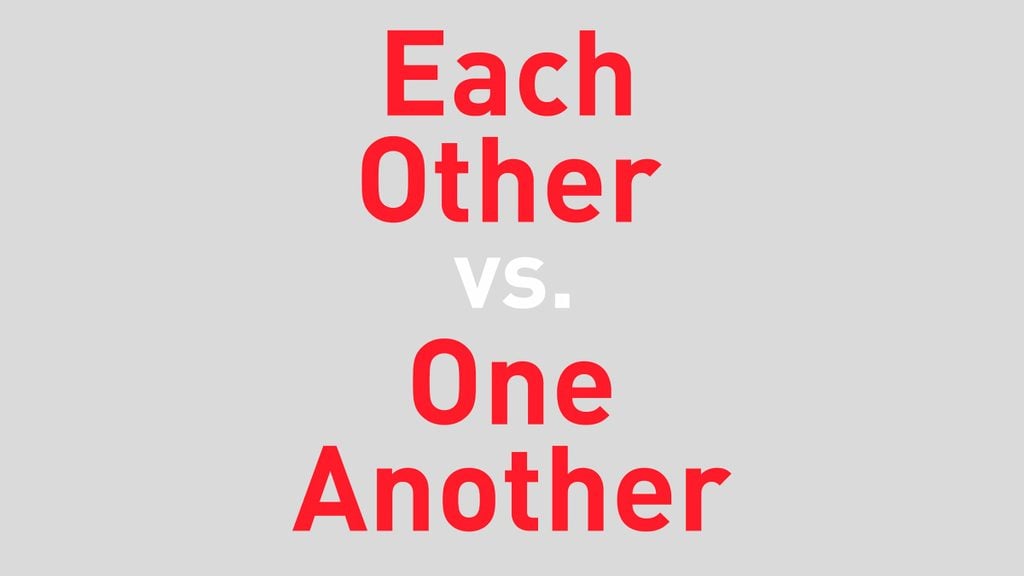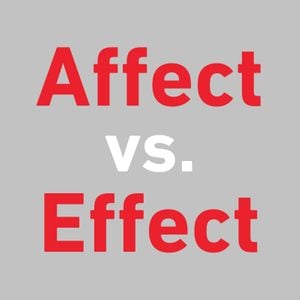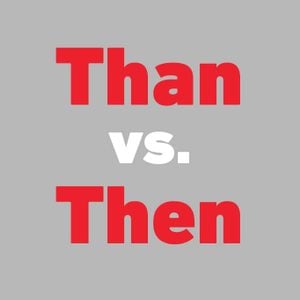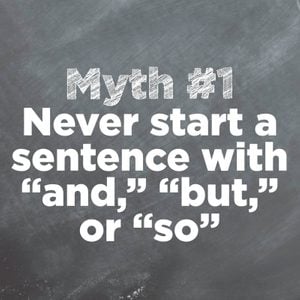Here’s the Correct Way to Use “Each Other” and “One Another”
Updated: Jul. 14, 2021

Let's settle the debate: Do they or don't they mean slightly different things?
If you’re like the majority of the English-speaking population, you probably use “each other” and “one another” interchangeably. But should you? After all, the English language is full of words and phrases that get used interchangeably even though they mean slightly (or sometimes more-than-slightly) different things. “Lay” and “lie,” for instance, mean different things, as do “less” and “fewer.” Should you be tweaking your usage of “each other” and “one another”? Is this one of the many grammar rules to follow to make yourself look smarter?
The similarities
It’d be hard not to be tempted to use “each other” and “one another” interchangeably. They’re both two-word phrases that distinctively end with “-other,” and their meanings are essentially the same as well. “Each other” and “one another” are the only two reciprocal pronouns in English. And even if you’ve never heard the phrase “reciprocal pronoun” before, you probably know what it means without realizing it. The phrases are “reciprocal” because they describe an action that is being done mutually, to and by everyone involved. For instance, you’d say “Steve and Carol liked each other, so they went on a date.” Steve liked Carol and Carol liked Steve.
But reciprocal pronouns don’t just have to apply to two people. You would also say “My coworkers and I are getting gifts for each other”—again, because the gift-exchanging mutually applies to everyone involved. Or…would you? Does it have to be “My coworkers and I are getting gifts for one another”? And that’s where the confusion arises.
The potential difference
Here’s where things get tricky. There is a camp of prescriptive linguists who insist that there is a difference. And that difference is: “Each other” should only be used to describe two individuals, while “one another” should only describe three or more. For instance, following this rule, you’d say that the two members of a married couple “love each other,” but you’d express your desire for peace on Earth by saying that we all just need to “love one another”—but not vice versa. You’d say that a group of five kids playing tag “chased one another,” but that two puppies in the yard “chased each other.”
Does this matter?
Good news, grammar nerds. For this distinction, as far as the dictionary is concerned, you’re in the clear—there’s nothing wrong with using “each other” and “one another” interchangeably. Their “different” meanings fall into the category of grammar rules you’re probably safe ignoring. Most grammarians shut down this potential difference, as do both Dictionary.com (see the “usage note”) and Merriam-Webster’s dictionary. Merriam-Webster perhaps puts it best: “The distinction [between ‘each other’ and ‘one another’], while neat, is not observed in actual usage. ‘Each other’ and ‘one another’ are used interchangeably by good writers and have been since at least the 16th century.” When it can sometimes seem like there’s no end to the words and phrases you’re mixing up, this little bit of linguistic lenience is definitely a relief!



